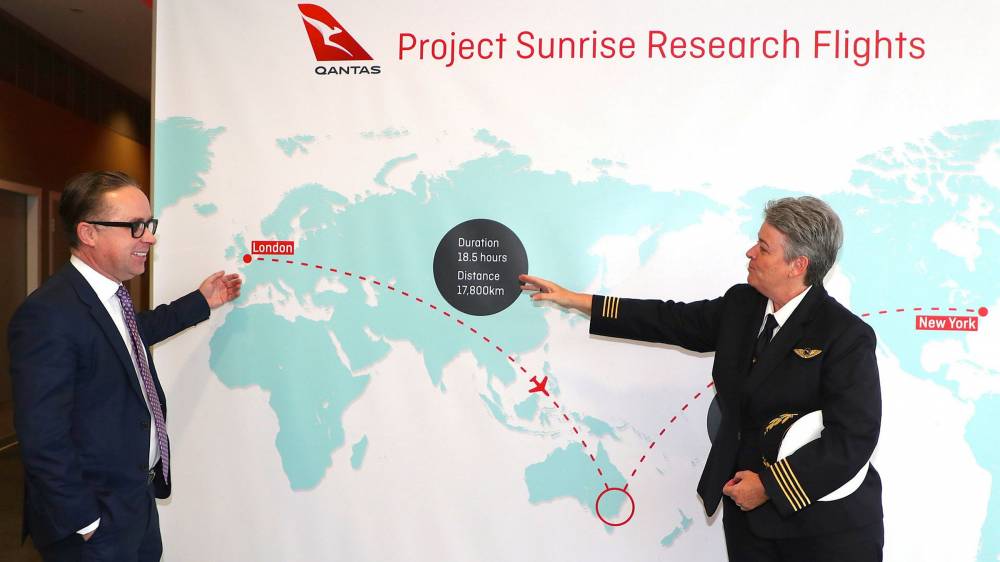SYDNEY, AUSTRALIA — Qantas anticipates soaring profit margins with upcoming launch of ultra-long-haul flights.
Qantas, Australia's national carrier, is anticipating a doubling of profit margins from international flights in the upcoming years. The soon-to-be-launched Project Sunrise ultra-long-haul flights are projected to contribute significantly to this increased profitability.
During its first investor day since the onset of the Covid-19 pandemic, Qantas provided updates on its overarching strategy through 2030, signifying a shift "from recovery to renewal and growth". The company anticipates its international operating profit margins will surpass 8% in fiscal 2024 - spanning the year ending June 30, 2024, representing a significant increase from the 4% margin reported in fiscal 2019.
Looking further ahead, Qantas predicts a profit margin of between 10-12% from its international division after launching ultra-long-haul flights. These flights are expected to yield a "substantial incremental earnings increase". Project Sunrise flights alone are forecasted to generate roughly A$400 million ($261 million) in annual earnings, once all 12 of its aircraft are operational. The initial Airbus A350-1000, of a planned 12, will join the fleet in 2025, with Qantas projecting to inaugurate the ultra-long-haul flights - non-stop services from Australia's east coast to London and New York – around the end of 2025.
On the domestic front, Qantas anticipates growing profit margins, albeit at a slower pace than its international operations. The carrier aims for a profit margin of approximately 18% in fiscal 2024, a rise from the 13% recorded in fiscal 2019.
Departing CEO Alan Joyce, whose tenure ends in November, expressed confidence in Qantas' positioning to leverage opportunities in a post-pandemic industry. Joyce articulated that the airline is a fundamentally different business than before the pandemic, operating in an evolved market landscape. He expressed confidence in the strategies outlined for future growth.
Incoming CEO Vanessa Hudson, the airline’s current CFO, added, "We’re confident in achieving our margin targets for [fiscal 2024], and we’ve set ambitious but attainable earnings goals beyond that, reflecting our belief that ambition is vital to sustained performance.”
The airline projects to declare a substantial annual profit for the year ending June 30, propelled by robust travel demand and moderating fuel prices and supply chain issues. It expects an underlying pre-tax profit between A$2.42 billion and A$2.48 billion, a significant improvement from the A$1.86 billion underlying loss reported in fiscal 2022.
These optimistic projections coincide with Qantas' entrance into the first phase of an extensive fleet renewal program. In 2022, the airline confirmed orders for new A220s, A321XLRs, and A350-1000s. Collectively, Qantas and its budget subsidiary Jetstar have almost 300 new Airbus aircraft on order.
Jetstar has already commenced receiving new A321LRs and Qantas anticipates the arrival of its first A220 in late-2023, followed by the A321XLRs a year later.

